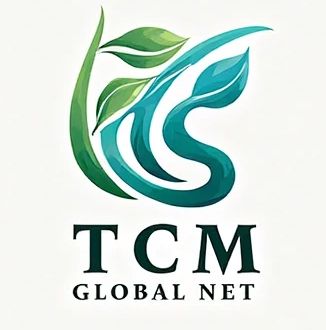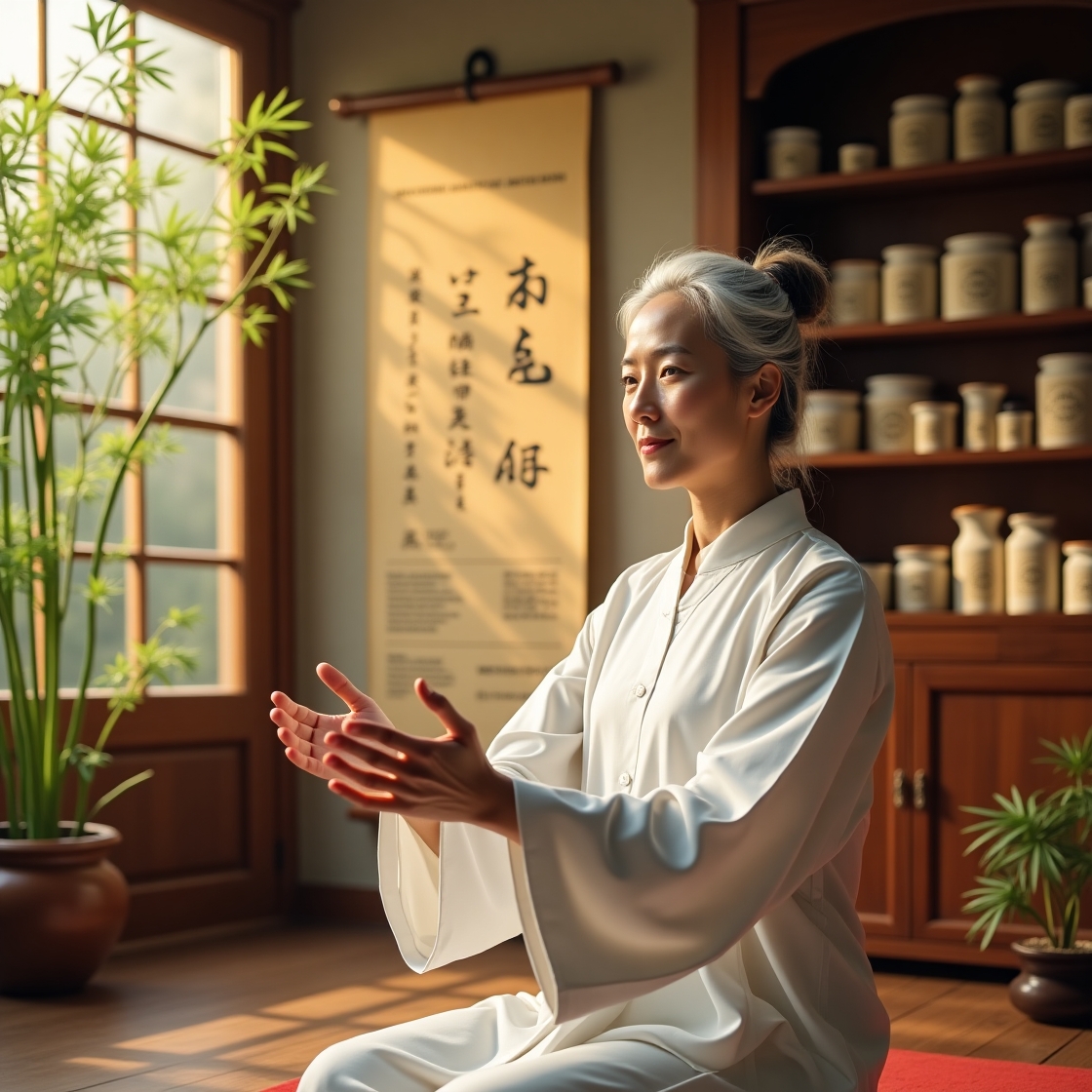在现代社会,运动似乎成为了追求健康的标配。从健身房里的挥汗如雨,到户外的跑步健身,人们对运动的热情日益高涨。然而,运动真的能如我们所期望的那样,毫无保留地恢复身体,让我们重获健康活力吗?站在中医的角度,答案并非如此简单。
一、现代运动与中医运动的本质差异
1、现代运动与古代经络运动
常见的现代运动,诸如跑步、健身、撸铁等,主要锻炼的是筋骨。在跑步时,我们的腿部肌肉、骨骼承受着运动的压力,心肺功能也在一定程度上得到提升,呼吸加快、心跳加速,血液流动也随之加快,肺活量得以提升,气血似乎得到了增强。
健身撸铁更是将重点放在肌肉的锻炼塑造上。
但从中医经络理论来看,这些运动并没有真正触及经络,更难以对臓腑起到直接的锻炼作用。
与之形成鲜明对比的是传统的中医功法。以太极拳为例,它动作缓慢、柔和,看似没有现代运动那般激烈,但它的核心在于运动经络和气脉。当习练者一招一式缓缓打出,体内的经络如同被一双温柔的手轻轻梳理。
中医讲“气为血之帅”,气行则血行,经络通畅了,血脉自然通畅。而且,在认真习练太极拳时,人体之气还会与天地之气相互交融,就像打开了身体的一扇窗户,吐浊纳清,吸收天地间的清气,排出体内的浊气。
然而,想要通过传统功法达到病愈的效果并非易事。这与个人对功法习练的深度以及自身的状态紧密相关。并非简单地模仿动作就能获得健康。真正练功并保持健康,需要满足几个前提条件。
首先,自身底子要不错,这里的底子指的是身体原本的气血、臓腑功能等基础。如果本身气血亏虚严重,臓腑功能衰弱,那么单纯依靠练功恢复健康就会困难重重。
其次,生活中不能有特别大的内耗。内耗包括过度劳累、长期熬夜、情绪的大起大落等。一个生活安详,情绪稳定的人,更有利于通过练功滋养身心。
最后,坚持日复一日的练功至关重要。功法的效果不是一蹴而就的,需要时间的积累和沉淀,只有长期坚持,才能逐渐感受到身体的变化。
如果做不到以上三点,想要单纯依靠练功来逆转亚健康,恢复身体健康,说实话是很难实现的。
2、身体不健康不能仅靠运动恢复的原因
身体出现的所有疾病以及亚健康状态,从中医理论根源上来剖析,无非可以归结为虚和实两个方面。
虚的情况较为复杂,从功能角度来看,可能存在气虚、血虚、阴虚、阳虚、津液亏虚等多种情况。
气虚的人常常表现为身体乏力,稍微活动就气喘吁吁;
血虚的人面色可能较为苍白或萎黄,容易出现头晕眼花的症状;
阴虚的人则可能会有手脚心发热、夜间盗汗等表现;
阳虚的人往往比较怕冷,四肢常年不温;
津液亏虚的人会感觉口干舌燥、皮肤干燥等。
从臓腑方面来说,又可能出现肺虚、脾虚、胃虚、肝虚、肾虚等等。
肺虚的人容易感冒、咳嗽;
脾虚的人消化功能往往不好,食欲不振,腹胀腹泻;
胃虚的人可能会有胃痛、胃胀,进食后不适等症状;
肝虚可能会导致眼睛干涩、视力下降、情绪抑郁等;
肾虚则可能出现腰膝酸软、性功能减退等问题。
实的情况同样多样:
像一切的结节、增生、囊肿、积液等器质性病变,从中医角度拆解,主要是由痰、湿、瘀、寒、热等因素导致。例如,
体内痰湿较重的人,可能体型偏胖,舌苔厚腻,容易困倦;
瘀血阻滞的人,身体可能会有固定部位的疼痛,皮肤可能会有瘀斑;
体内有寒邪的人,怕冷的症状会比较明显,可能还会有腹痛、腹泻等表现;
而体内有热邪的人,则可能会出现发热、口渴、咽喉肿痛等症状。
3、针对这些虚和实的情况,中医有着明确的调理原则。
虚则当补,根据不同的虚证,采用补气、补血、补阴、补阳、补津液等方法;
实则当开、当泄、当通,如化痰、祛湿、活血化瘀、散寒、清热等。
很显然,这些复杂的身体状况,不是光靠运动就能解决的。对于那些身体非常虚弱,健康状况低于60分的人来说,即便没有内耗,也能坚持练功,恢复健康也是一个漫长的过程。因为身体虚就如同一个仓库里的物资匮乏,运动虽然能在一定程度上促进阳气的流通,但却无法从根本上补充匮乏的物资,就像巧妇难为无米之炊一样。
4、你得分清你是不通还是不荣如果你本身不缺,只是局部不通,那你通过运动的方式,很多亚健康就都可以解决了。如果你本身就少了,很多亚健康是因为没有气血来荣养。这时候你的运动可能会成为你身体更大的负担。就会出现一个这样的现象:你运动的时候感觉还不错,气色各方面都可以。但运动完以后会感觉更累,更不舒服。这时候你就应该想想是不是要考虑换一种方式,不能完全靠运动这一种方式来调理了。我们把前面只是不通的人可以归类为自愈力强的亚健康人群运动运动就变成“健康人群”了。而后者则是真正的亚健康人群,可能很多别人觉得有效的方子,他服了都不理想,别人觉得健康的运动,他动完还是一样。所以,到底你身体适不适合运动,或者你的身体该选择怎么样的方式调理才最好呢?首先你得对自己的身体有足够清晰的了解。
现代医学是让你每年去做检查报告,看指标数据,但往往最后的结果就是:慢性疾病终身服药,急性症状或器质性病变去医院做手术。
中医同样也有对应的一套准则。中医对人的身体健康不是指标数据,而是以你各个方面的身体感觉、功能为准。
这是我之前写过的一篇关于真正健康的饮食、大便、睡眠、情致标准:身体健康的指标很多人依然搞不明白什么叫做健康,什么叫做不健康。可能会错把不健康当做是健康,延误了身体恢复。另外,我结合多年的临床把人的健康分成了几个分数段。
至于你的身体到底打多少分呢?
☆☆现代运动的局限性
- 筋骨锻炼为主:跑步、撸铁等运动主要刺激肌肉骨骼系统,提升心肺功能,但对经络和脏腑的调节作用有限。
- 能量消耗陷阱:过度运动可能耗伤气血,加重阴虚或阳虚(如夜跑后盗汗、畏寒)。
☆☆中医运动的智慧
- 经络导引术:太极拳、八段锦通过缓慢动作疏通十二正经,如“云手”动作调理肝胆经,“单鞭”动作激活膀胱经。
- 气血双补原则:动作设计遵循“形、气、神”合一,如五禽戏模仿动物姿态,导引体内清气上升、浊气下降。
对比:
| 运动类型 | 适用人群 | 调理效果 |
|---|---|---|
| 现代健身 | 青壮年亚健康 | 提升肌肉力量,短期改善体能 |
| 太极拳 | 中老年气血虚者 | 3个月改善平衡力,6个月提升睡眠质量 |
二、身体不健康的深层原因:虚实辨证解析
(附舌象图谱与体质自测表)
1. 虚证四大类型与表现
| 虚证类型 | 典型症状 | 舌象特征 | 禁忌运动 |
|---|---|---|---|
| 气虚 | 气喘、乏力 | 舌淡红苔薄白 | 高强度间歇训练(HIIT) |
| 血虚 | 面色苍白、头晕 | 舌淡胖齿痕 | 长跑、高温瑜伽 |
| 阴虚 | 盗汗、五心烦热 | 舌红少苔 | 热瑜伽、桑拿 |
| 阳虚 | 畏寒、四肢冰凉 | 舌淡紫苔白滑 | 冬泳、冷水澡 |
2. 实证三大诱因与危害
| 实证类型 | 形成原因 | 典型疾病 | 调理方向 |
|---|---|---|---|
| 痰湿 | 饮食油腻+脾虚运化不足 | 脂肪肝、多囊卵巢 | 二陈汤+山楂荷叶茶 |
| 瘀血 | 气滞血瘀+外伤史 | 子宫肌瘤、关节炎 | 桃红四物汤+刺络放血 |
| 寒热错杂 | 暴饮暴食+作息紊乱 | 肠易激综合征 | 半夏泻心汤+艾灸神阙 |
三、中医调理的核心原则:通补结合
(附经典方剂与操作指南)
1. 虚证调理三步法
- 第一步:缓补气血
- 方剂:八珍汤(党参15g+熟地黄20g+当归10g)
- 食疗:当归生姜羊肉汤(每周2次,经期停服)
- 第二步:疏通经络
- 功法:每日晨练“左右开弓似射雕”(疏通手太阴肺经)
- 第三步:巩固根基
- 习惯:亥时(21-23点)前入睡,配合涌泉穴贴敷吴茱萸粉
2. 实证调理关键点
- 痰湿体质:
- 刺络放血(丰隆穴+阴陵泉穴)每周1次
- 药膳:赤小豆薏米粥(炒薏米需先浸泡2小时)
- 瘀血阻滞:
- 外治法:桃仁红花药酒外敷痛处(红花10g+桃仁15g+白酒500ml)
- 内服方:血府逐瘀汤(桃仁12g+红花9g+川芎6g)
四、如何判断你是否适合运动?
1. 运动适应性评估
| 评分项 | 达标标准 | 得分 |
|---|---|---|
| 晨起舌苔状态 | 淡红舌/薄白苔 | 20分 |
| 运动后恢复速度 | 30分钟内疲劳感消失 | 30分 |
| 夜间睡眠质量 | 深度睡眠≥4小时 | 25分 |
| 情绪稳定性 | 月均烦躁次数≤2次 | 25分 |
2. 结果对照表
| 总分区间 | 调理建议 |
|---|---|
| 80-100分 | 可适度进行有氧运动(如快走) |
| 50-79分 | 需先服用汤药调理再运动 |
| <50分 | 禁忌剧烈运动,以静养为主 |


发表回复